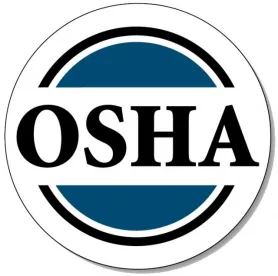New questions are emerging about key provisions the Occupational Safety and Health Administration’s updated rule to prevent falls.
Effective January 17, 2017, the final rule updating OSHA’s general industry Walking-Working Surfaces standards permits certain work near the edge of low-slope roofs without fall protection systems, as long as the work is “temporary, relatively infrequent.”
The rule requires conventional means of fall protection for work that is done less than six feet from the edge of a roof. Conventional systems would include a guardrail, personal fall arrest system, or travel restraint systems. For “temporary, relatively infrequent” work done at distances from between six feet and 15 feet, OSHA does not require fall protection.
The rule explains that “designated areas” that pose a fall risk “may only be used for temporary, relatively infrequent work,” such as “equipment repair or annual maintenance.”
In its discussion about the final rule, the agency said, “OSHA is limiting the use of designated areas to low-slope roofs and to work more than 6 feet from the edge. Employers may use designated areas for work that is more than 6 feet and less than 15 feet from the edge if it is both infrequent and temporary. If the work is not temporary or infrequent, the employer may use a designated area if the work is more than 15 feet from the roof edge.”
According to a Bloomberg BNA report, questions about what qualifies as “temporary, relatively infrequent” work were raised during a panel discussion in June at a conference of the American Society of Safety Engineers.
When it released the rule, OSHA had acknowledged, “Although the final rule does not place a specific time limit on what constitutes a temporary task, OSHA agrees with [the Sheet Metal and Air Conditioning Contractors’ National Association] SMACNA that short duration tasks generally are those that take less than ‘1-2 hours’ to complete.” Examples of such tasks include “changing a filter in a roof-top HVAC system, replacing a part on a satellite dish, caulking or resealing the flashing around a skylight, or sweeping a chimney.”
It also had noted, “The term ‘infrequent,’ for purposes of the final rule, means that the task or job is performed only on occasion, when needed (e.g., equipment breakdown), on an occasional basis, or at sporadic or irregular intervals.” Examples of such tasks include “annual maintenance or servicing of equipment, monthly or quarterly replacement of batteries or HVAC filters, and responding to equipment outage or breakdown.” OSHA said, “In these instances, the frequency of exposure to fall hazards is very limited.”
OSHA continued, “Infrequent jobs also do not include those that workers perform as a primary or routine part of their job or repeatedly at various locations during a workshift. A task may be considered infrequent when it is performed once a month, once a year, or when needed.”
In a fact sheet about the final rule, OSHA said that, on average, about 202,066 serious (lost-workday) injuries and 345 fatalities occur annually among workers directly affected by the final rule. OSHA estimated the rule will prevent 29 fatalities and 5,842 lost-workday injuries every year.
OSHA noted the final rule “better protects workers in general industry from these hazards by updating and clarifying standards and adding training and inspection requirements. The rule affects a wide range of workers, from window washers to chimney sweeps.” The rule did not change standards for the construction or agricultural industries, instead, the agency said, it aligned fall protection requirements for general industry with regulations from the construction industry.




 />i
/>i

